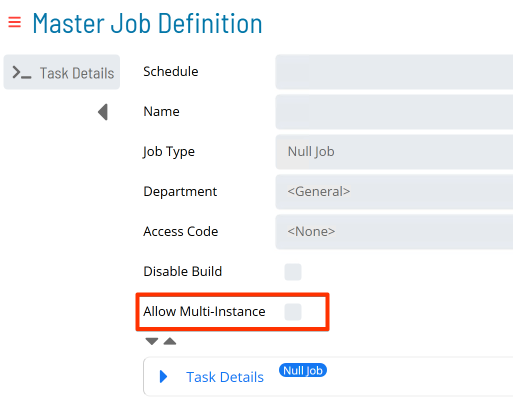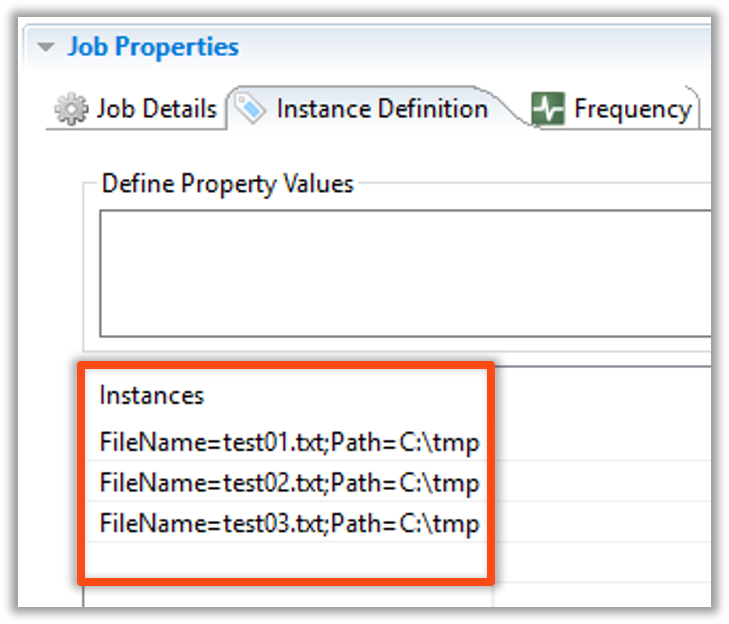Multi-Instance Jobs
Overview
- Multi-Instance Jobs allow a single Job template to spawn multiple copies of itself using different sets of properties
- Allow Multi-Instance check box must be marked to allow a Multi-Instance Job
- Container Jobs are Multi-Instance by default
Job Definition

Jobs Instance Property Sets
- Create Job Instance Property Sets using the Instance Definition tab within Job Master
- Rules that apply to Multi Instance Schedules also apply to Multi Instance Jobs
- When there are multiple properties defined in a set each property is separated with a semi-colon (;)
- FileName=test01.txt;Path=C:\tmp
- A Job will be named using the value of the first Instance Property defined in a String
- JobName_JI-Value
- JobName_test.txt
- Duplicates will have a $####
- JobName_test-1.txt$0004
- JobName_JI-Value
Enterprise Manager
Details
Multi-Instance Jobs
- Multi-Instance Jobs allow a single Job template to spawn multiple copies of itself using different sets of properties
Example (Purpose):
- Ten Jobs are the same other than few small changes on the Command Line
- Use one Job to build all ten
- Allow Multi-Instance check box must be marked to allow a Multi-Instance Job
- Container Jobs are Multi-Instance by default

Multi-Instance Jobs - Instance Definition
- Create Job Instance Definitions using the Instance Definition tab within Job Master
- Similar rules apply to Multi-Instance Schedules and Jobs
- Use a semicolon (;) to separate Job Instance Properties
FileName=test01.txt;Path=C:\tmp
- A Job will be named using the value of the first Instance Property defined in a String
- Name Scheme Example:
JobName_JI-Value
JobName_test.txt
- Duplicates will have a $####
JobName_test-1.txt$0004
